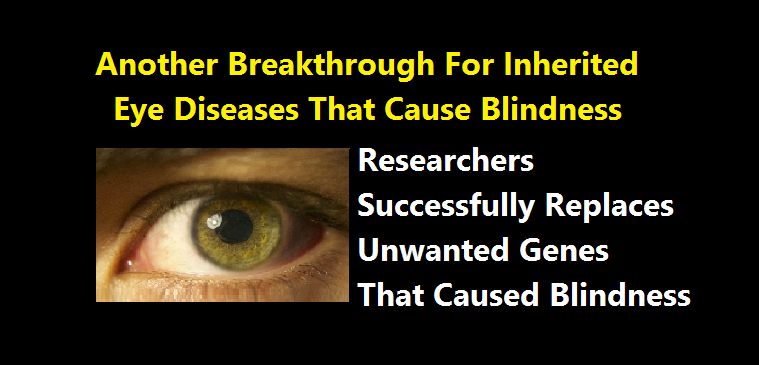Researchers Successfully Replaces Unwanted Genes That Caused Blindness
For sure, many researchers are trying hard to find a cure for inherited eye diseases, and Tasmanian-led research team has some success now. The research led by Alex Hewitt, has concluded that his team successfully edited adult eye tissue genes in the laboratory to replace unwanted genes that caused blindness.
The research is led by, Associate Professor Alex Hewitt, an ophthalmologist and a researcher with the University of Tasmania’s Menzies Institute for Medical Research and the School of Medicine.
He also discussed about CRISPR (Clustered regularly interspaced short palindromic repeats), which was developed by US, that it could be deployed by a simple injection into the eye, where they would latch onto the genes of individual eye cells. And then chop out tiny DNA fragments containing the rogue genes and replace them with normal genes.
He said,
Regulators would first need to be satisfied the technique was safe, and that the shears could be turned off once they had done their job.
He was optimist about it and said,
Tasmanian doctors could soon start wielding molecular gene shears inside the eyes of humans.
It is definitely not ready for humans yet, there are many safety issues, but I’m bullish.
He said stem cell technology, enabling the invitro conversion of stem cells, from another part of the body, into retinal cells, made it possible to study retinal cells from patients without taking a samples from their eye.
Discussing about how it was possible to study retinal cells from patients without even taking a samples from their eye, he said, stem cell technology, enabling the invitro conversion of stem cells, from another part of the body, into retinal cells made it feasible.
The team is aiming to advance the technique to at least the human medical trial stage and according to them this could happen within five years, that would also cost around $250,000.
He has been named Australia’s top-ranked medical research fellow and practitioner for last year by the National Health and Medical Research Council. The professor is also working on more conventional drug therapies for diseases such as glaucoma and macular degeneration.
Researcher
Alex Hewitt and his team.
Research going on at, University of Tasmania’s Menzies Institute for Medical Research and the School of Medicine.
News Source> The Mercury




